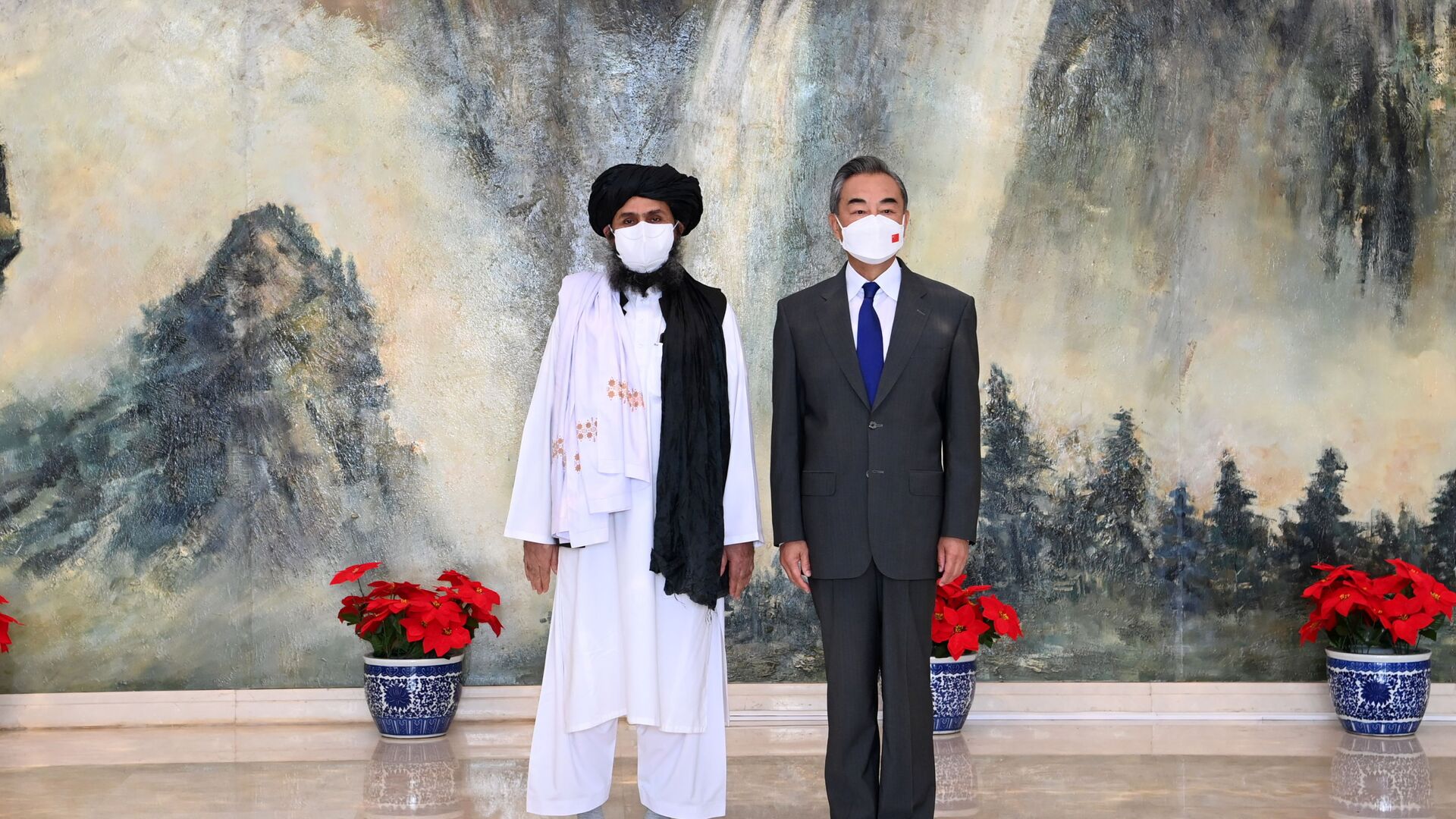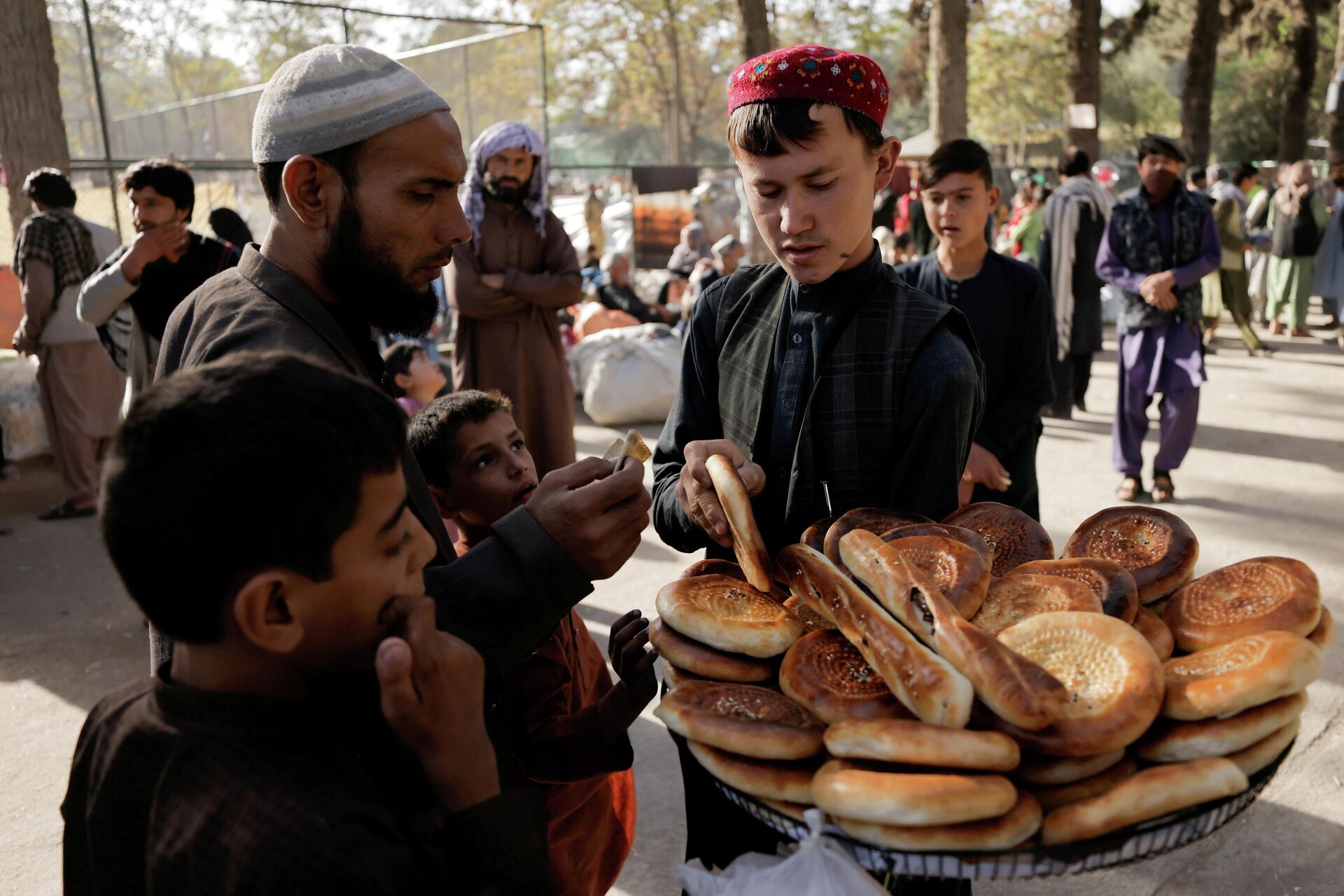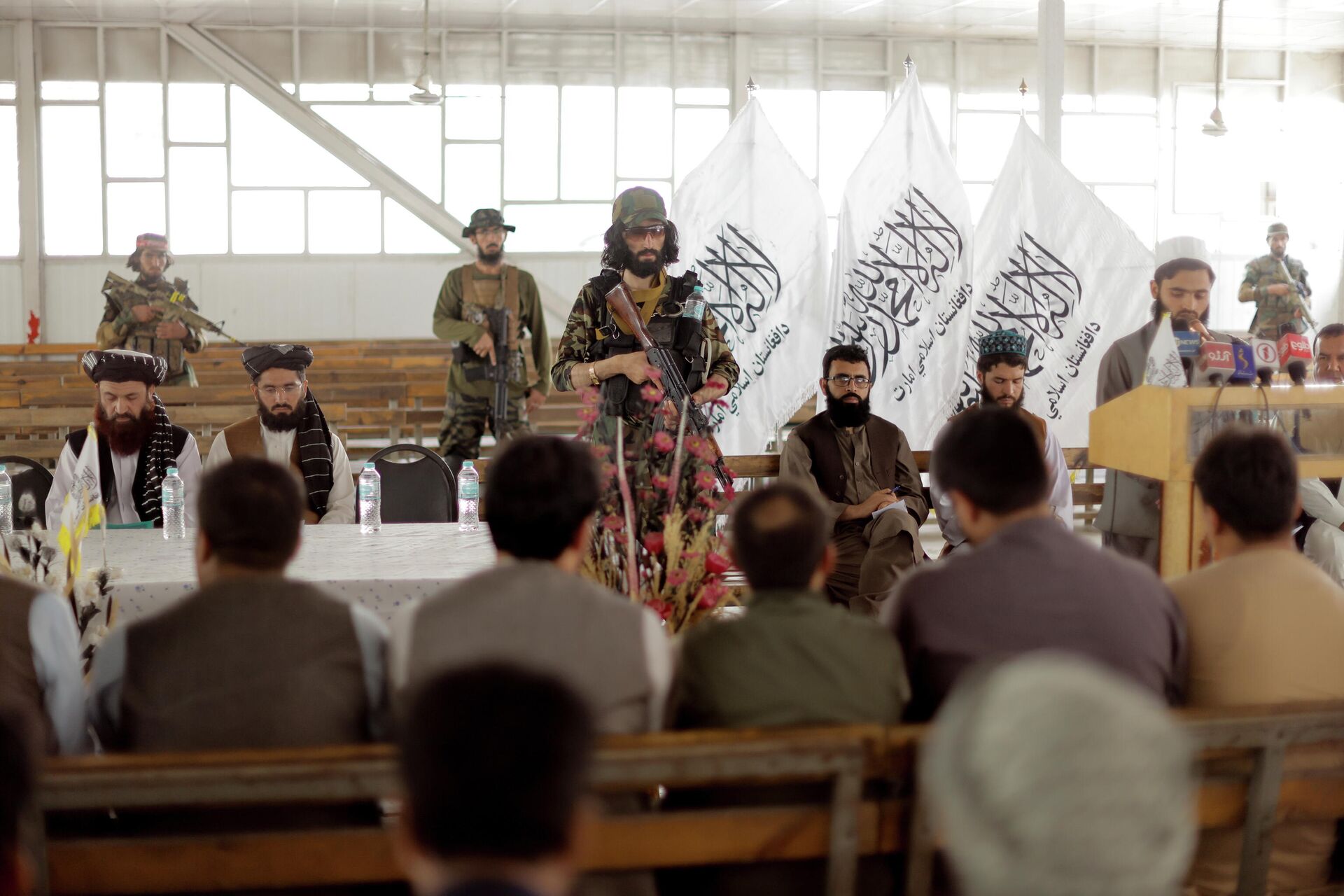Chinese FM Wang Yi to Meet Afghan Taliban Leaders in Qatar for First High-Level Talks
20:23 GMT 25.10.2021 (Updated: 20:36 GMT 19.10.2022)

© XINHUA
Subscribe
The Taliban* has previously promised Beijing that it would stop supporting Uyghur terrorist groups in exchange for investment and foreign aid, which the war-torn country sorely needs.
Chinese State Councilor and Foreign Minister Wang Yi is set to meet with Taliban leaders in Doha, Qatar, for the first high-level talks since the group overthrew the US-backed Afghan government in August and declared an Islamic Emirate.
The visit will take place Monday and Tuesday and focus on a number of “fundamental changes” that have taken place in Afghanistan since Wang last met with Taliban leaders in July in Tianjin, Foreign Ministry Spokesperson Wang Wenbin told reporters.
“[T]he Afghan people are also facing many difficulties and challenges, where there is an urgent need for external support,” Wang said. “As a traditionally friendly neighbor and cooperation partner of Afghanistan, China always calls for dialogue and engagement to guide the Afghan situation towards positive development and help the people tide over difficulties.”
‘Between Migration and Starvation’
A new United Nations report on the crisis in Afghanistan highlights the most immediate dangers, which include “a record level of acute hunger” faced by more than half the population.
The Integrated Food Report, published on Monday by the Food and Agriculture Organization (FAO) and World Food Program (WFP), found that 22.8 million Afghans - almost half the country’s 39 million people - have seen their lives, livelihoods, and access to food “severely impacted” by the combined shocks of drought, war, COVID-19, and the economic crisis brought on by the end of aid from the US and many other international groups that had worked with the US-backed Afghan government before its August overthrow.
The numbers include 3.2 million children under the age of 5.
“Afghanistan is now among the world’s worst humanitarian crises – if not the worst – and food security has all but collapsed,” WFP Executive Director David Beasley said in a news release. “This winter, millions of Afghans will be forced to choose between migration and starvation unless we can step up our life-saving assistance, and unless the economy can be resuscitated.”

A boy sells bread at a makeshift shelter for displaced Afghan families, who are fleeing the violence in their provinces, at Shahr-e Naw park, in Kabul, Afghanistan October 4, 2021.
© REUTERS / JORGE SILVA
According to World Bank data, foreign aid comprised 43% of Afghanistan’s gross domestic product (GDP) last year, or $8.5 billion. Filling that gap has been tough: the UN has pledged $1.1 billion in donations and the European Union another $1.15 billion.
The US formerly gave its Afghan ally almost $4 billion per year to fill vital budgets, including military salaries, but the US Agency for International Development (USAID) has pledged only $64 million in aid since the Taliban takeover. Earlier this month, the Taliban claimed after meeting with US delegates in Doha that Washington had pledged to provide more assistance, but no numerical value has so far been assigned to that pledge.
Beijing has also promised about $31 million in aid to Afghanistan, including food and medical supplies that include COVID-19 vaccines.
The Taliban and Xinjiang Separatists
At the Tianjin summit between Wang told Mullah Abdul Ghani Baradar, who is now Afghanistan’s deputy prime minister, that the group must “deal resolutely” with the East Turkestan Islamic Movement (ETIM), an Uyghur terrorist group that seeks independence for the Xinjiang Autonomous Region, China’s westernmost province that shares a small border with Afghanistan’s Badakhshan Province.
The meeting was hailed by US Secretary of State Antony Blinken, who noted that anything that stabilizes Afghanistan and creates an inclusive government is “a positive thing.”
That was two weeks before the Taliban captured Kabul without a fight and then-President Ashraf Ghani fled into exile. Suddenly, the Taliban was no longer a party to a larger government of national unity, but acting as the effective government itself. Beijing and surrounding nations reiterated their expectations prior to recognition, which variously included ending support for the ETIM, Tehrik-i-Taliban Pakistan, and al-Qaeda*, as well as forming an inclusive government that would have female members and members of Afghanistan’s many minority groups, including Hazaras and Tajiks, most of whom are also Shiites.
Recognition and normalization of ties with China or other neighbors is the key to the Taliban’s long-term survival, as it would likely bring significant investment in infrastructure, mining, and other industries, since the Central Asian nation sits at a regional crossroads and nations like Iran, Tajikistan, China, and Pakistan are rapidly increasing their trade ties.

Afghanistan Taliban officials pray before the start of a news conference where they announced they will start issuing passports to its citizens again following months of delays that hampered attempts by those trying to flee the country after the Taliban seized control, in Kabul, Afghanistan October 5, 2021
© REUTERS / JORGE SILVA
Zhu Yongbiao, director of the Center for Afghanistan Studies in Lanzhou University, told the Global Times on Monday that the meeting would likely focus on any remaining ties between the Taliban and the ETIM.
Taliban spokesperson Suhail Shaheen told the Global Times in early September that the group had told the ETIM that there was no longer any place in Afghanistan for those "who are intending to carry out sabotage activities in other countries or have their foreign agenda."
There are signs the Taliban may be following through on some of those promises. A terrorist attack by Daesh-Khorasan* against a Shiite mosque in Kunduz earlier this month that killed 55 people was carried out by an Uyghur fighter, which the terrorist group specifically noted, suggesting that ETIM members might be joining the terrorist group, which is hostile to the Taliban, or that Daesh is now able to recruit from radicalized Uyghur communities.
However, the US state-funded outlet Radio Free Europe/Radio Liberty, citing a former Afghan military official, reported earlier this month that the Taliban had not kicked out ETIM members in Badakhshan, but simply relocated them to other parts of the country, such as Nangarhar, which is further south and borders Pakistan.
* Terrorist groups banned in Russia and many other countries



